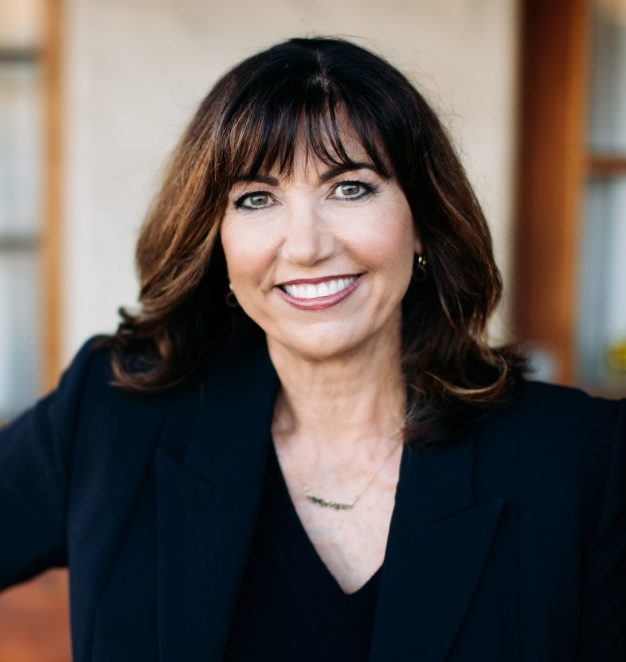We tend to go a mile wide and an inch deep with subjects, rather than allow students to dive deep into areas of interest. We give [students] few opportunities to apply what we are teaching them.
Pam Roy, Co-founder of B-Unbound and Straight Up Impact
Is it possible that the Department of Motor Vehicles (DMV) can provide an example of what needs to happen in education? I think so. There are many parallels between the two standardized systems, including reducing humans to numbers and ignoring individual circumstances or complexities; applying an assembly-line approach to the people using their mandatory services; and requiring memorization of content that is often forgotten in the real world.
But, there is one critical difference that highlights a gaping hole in education.
The DMV requires young people to drive with an adult for at least six months before going it alone. This difference is significant because it recognizes the clear distinction between book rules and road rules. It is the unwritten road rules that make us good drivers. These rules are only learned through practice and experience.
As we have doubled down on testing and focused on college-for-all trajectories, fewer learners get exposed to any real-world experiences with adults during their schooling, let alone six months of guidance. Worse, few college learners experience internships alongside their coursework. For 18 to 22 years, we put them all into an intellectual, theoretical simulator filled with our past understandings (from a single perspective) and then turn them loose to figure out how to build a life alone.
Academics provide few essential life skills, and the school simulator is almost completely disconnected from what real life looks like. We do not separate subjects out, batch age groups, or shift at specific time intervals. These are remnants of the factory model upon which our schools were built.
As we have doubled down on testing and focused on college-for-all trajectories, fewer learners get exposed to any real-world experiences with adults during their schooling, let alone six months of guidance.
Pam Roy, Co-founder of B-Unbound and Straight Up Impact
Also, the emphasis on compliance and conformity runs counter to the independent decision-making we hope our children learn. It teaches them to be validated by external measures (grades, test scores, likes, followers), and the constant competition fuels social disconnection. Many opportunities in the transforming economy value self-direction, innovative thinking, and collaboration.
Schools focus on determining WHAT they think all students need to know. Just like the unwritten rules, which are incredibly important to driving, in life, it is actually the WHO, HOW, and WHY that is arguably more important.
Who
According to LinkedIn and other similar studies, 85% of jobs are found through relationships in the workplace. Additionally, 70% of all jobs are not published—they are found only through personal and professional relationships. WHO our children know is more than a social media connection; it is about who knows them as well.
Huge shifts are taking place and new opportunities are emerging that may not fall into our predefined career clusters. Schools cannot keep up with the rapidly evolving workplace and the disconnection is continually widening. In fact, in many ways, the term career is a misnomer since technology and new ways of working are shaking up traditional fields of study.
Yet, our children are more than their utilitarian value to an economic machine. As they move through their lives, regardless of their job, their resilience rests on relationships. This is true for all age groups. One of the longest-running studies determined that “close relationships, more than money or fame, are what keep people happy throughout their lives.”
In our busy world, we focus more on tasks than relationships. Nurturing relationships takes time and attention. Although there are many caring teachers who may make the experience of school palatable, they are required to focus their time on measurable outputs for their job security and their students’ cultural worthiness. Institutional systems are transactional, not relational. This responsibility belongs in our homes and communities.
How
We are human beings, not programmable robots. As John Dewey noted, humans learn by doing. While knowledge can inform action, it doesn’t necessarily lead to action. We tend to go a mile wide and an inch deep with subjects, rather than allow students to dive deep into areas of interest.
We give them few opportunities to apply what we are teaching them. We delude ourselves into thinking that if we are teaching it to them, they must be learning. This is absolutely not the case since there are so many variables that go into true learning (versus memorization for tests), including relevance, interest, relationships, safety, environment, nutrition, to name a few. Learning is a part of being human and happens in all environments, not just in schools.
Getting good at something takes practice. Hands-on engagement, especially with other people supporting you, is how we develop skills. This is why apprenticeships are often successful for skill-specific workforces. The world is changing so fast that our children need to be interacting in the real world to see the possibilities and take advantage of the opportunities.
Wouldn’t it be better to let our children figure out what they are interested in and explore it prior to committing so much time and money to get them all to college? Most jobs (7 out of 10) do not require a college degree and many skills-based certifications pay better than degrees. College is now an “if” and “when” option—if the student needs it for their particular interest or field of study and when they decide to go is no longer tied to a certain age. College degrees can be attained at any stage of life.
Why
Our primary motivation for living is to find meaning in our lives, according to renowned psychiatrist Viktor Frankl. His research showed this is a key factor in mental health and wellness. Meaning is specific to the individual and the unique situations encountered through life. We cannot create it or give it to our children, as our modern culture tries to do. It involves a discovery process. Meaning is a pull, not a push.
From a young age, our children gravitate towards specific interests and curiosities. Even those born into the same family will connect to the world differently. Each one of the 7.8 billion people on this planet is unique and irreplaceable. Each has a potential contribution to make to the evolution of humanity. We have limited this potential in our standardized systems of living.
WHY is the engine that fuels the pursuit of meaning. It keeps us strong when obstacles emerge. Meaningful tension is essential, and the struggle to persevere propels us forward in life. Chronic stress derives from the busyness of meaningless tasks.
Our simulated systems of education have proven inadequate in honoring individuality and preparing our children to navigate their own way as adults with dignity and belonging. The long dehumanizing road in preparing all students for college acceptance has taken a significant toll on engagement, creativity, collaboration, and mental health.
Many years ago, astronomer Carl Sagan noticed this exact problem when talking with young people:
“You go talk to kindergartners or first-grade kids, you find a class full of science enthusiasts. They ask deep questions. They ask, ‘What is a dream, why do we have toes, why is the moon round, what is the birthday of the world, why is grass green?’
These are profound, important questions. They just bubble right out of them.?
You go talk to 12th graders and there’s none of that. They’ve become incurious. Something terrible has happened between kindergarten and 12th grade.”?
— CARL SAGAN
How Might We Center the Who, How, and Why?
So, here we are at a fork in the road. Do we continue to place unfair burdens on school systems to prepare our children for life, or do we shift some of this responsibility back to our communities? Relationships, experiences, and applied knowledge, as well as meaning and purpose, are all essential for a fulfilling life. We cannot manufacture these in a mass-production model; exposure to a variety of situations, people, and circumstances are necessary and specific to an individual.
Schools and most extra-curricular activities are adult-driven, giving children little practice in learning to handle things on their own. Instead of asking, “How smart is this child?” according to academic measurements, we should be asking, “How is this child smart?” We need diverse intelligences and talents for vibrant communities to thrive.
When I became a parent, the forty-year gap between my education and my children exposed some of these realities early on. Through their school years, we moved against the tide and made the difficult trade-offs necessary to free up time to ensure relationships and experiences were at the center. Family dinner was the sacred time against which many desired activities were measured. Each of my three daughters pursued their interests and found mentors to guide them. They worked or volunteered during their high school years. All these experiences outside of school provided them with a view of themselves not found in grades and test scores.
Today, as young adults, they are navigating their own way. They are in the driver’s seat with me sitting beside them, as I have always done. Yes, there were some really scary times and wild rides (in the car and in life). But, struggle is the portal to growth, and I honor it. To keep myself sane, I relied on support from my family and close friends.
Now that my children are largely on their own, I have embarked on a new chapter focused on filling this gaping hole in education by providing opportunities for other children to gain this type of exposure. To this end, I co-founded B-Unbound with Elliot Washor, a founder of the innovative education organization Big Picture Learning (BPL). Elliot, an educator for 52 years and author of Leaving to Learn, saw the need to get students out and exposed to the real world around their interests. Although BPL traditionally operates in public schools, B-Unbound expands its proven methods into the community so it is available to all youth (14-24) regardless of zip code or whether they attend any specific type of schooling.
A dramatic shift in the way we educate our children is urgently needed. As parents, we can model what it looks like to be responsible changemakers and create an ecosystem of learning for future generations.
Pam Roy, Co-founder of B-Unbound and Straight Up Impact
We have started B-Unbound pilots in several states with community-based organizations like the Boys & Girls Clubs and after-school programs, homeschool resource centers, and maker spaces. With support from the LEGO Foundation, we have modified the offerings to include younger age groups (7-13).
Recently, Elliot and I decided to co-write a book that would provide parents (or groups of parents) with the tools necessary to help their children B-Unbound, as both of us did with our own children. The book and accompanying workshops are now under development.
A dramatic shift in the way we educate our children is urgently needed. As parents, we can model what it looks like to be responsible changemakers and create an ecosystem of learning for future generations. We can look at all children in the community as our children, as many other countries do and generate a huge paradigm shift away from the “what’s in it for me” culture we have created.
Being human means relating to something or someone other than ourselves. In this way, we come alive. The more alive the individuals, the more alive the community. Isn’t that what we all want?

